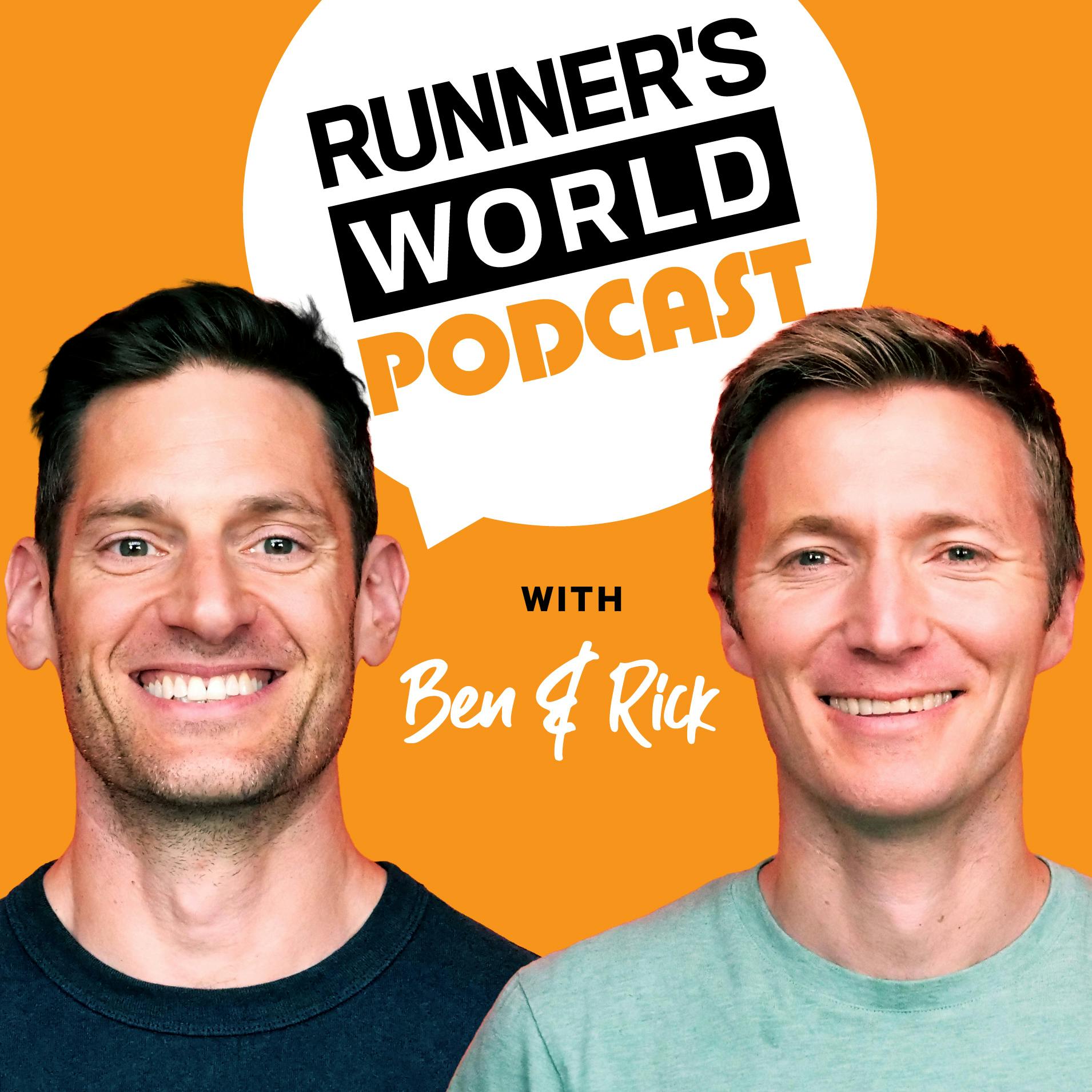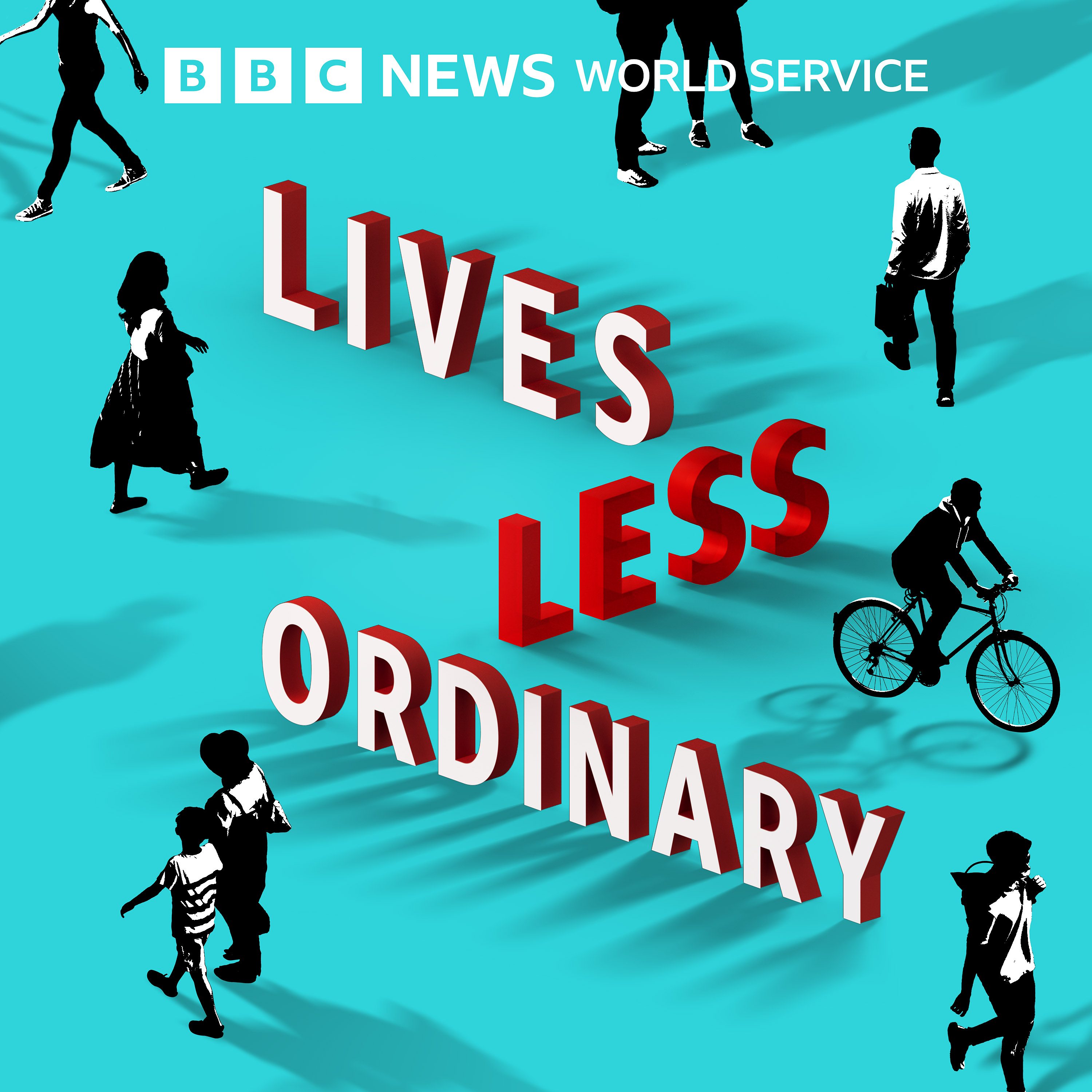
Brian's Run Pod
Welcome to Brian's Run Pod, the podcast where we lace up our running shoes and explore the exhilarating world of running. Whether you're a seasoned marathoner, a casual jogger, or just thinking about taking your first stride, this podcast is your ultimate companion on your running journey.
Join us as we dive deep into the sport of running, covering everything from training tips and race strategies to personal stories and inspiring interviews with runners from all walks of life. Whether you're looking to improve your race times, stay motivated, or simply enjoy the therapeutic rhythm of running, Brian's Run Pod has something for every runner.
Brian's Run Pod
Life Lessons from Running.
This week's episode isn't just about pounding the pavement; it's an exploration of how the lessons from those long runs can help us set, pursue, and achieve our most challenging goals. Whether you're lacing up your sneakers or jotting down this year's aspirations, you'll find that the joy in these journeys can lead to unexpected, life-changing discoveries.
Strap on your headphones and join me as we celebrate each stride towards success, big or small, and discuss why self-care and self-belief are your best allies in any marathon—literal or metaphorical. We're not just talking about running; it's about navigating life's course with the same perseverance and heart. From the uplifting words of Sir Roger Bannister to the collective wisdom shared by runners like Miranda Markham and others, we're going to get you fired up about the indomitable spirit of running and how its freedom can invigorate your life in the face of any challenge. So, tune in, get inspired, and let's hit the ground running towards our best selves, with a spirit that refuses to be caged by life's hurdles.
Brian's Run Pod has become interactive with the audience. If you look at the top of the Episode description tap on "Send us a Text Message". You can tell me what you think of the episode or alternatively what you would like covered. If your lucky I might even read them out on the podcast.
Instagram
So you're thinking about running, but not sure how to take the first step. My name is Brian Patterson and I'm here to help. Welcome to Brian's Rompod. Well, welcome to Brian's Rompod, and I'm your host, brian Patterson. And this week we are following on from last week's New Year's Resolution episode and we're going to be talking about what are the life lessons learned from running A bit unorthodox subject to cover on a podcast.
Speaker 1:However, it is a subject I thought we would cover for those who run regularly and do feel that there are some really important lessons. Now, before we dive into that, first, I just wanted to look at an example of a New Year's Resolution. So what is an? Where have I come and have I experienced a really successful New Year's Resolution? Well, a successful one has been this podcast. Now, I know I'm going to be a bit off topic here, but just bear with me. So I think the lessons I learned are the following First of all, pick something or a resolution that you're going to enjoy. Sounds obvious, I know, and if you think it's something that you should be doing, then then stop. So, like for this, for instance, you know, losing weight of Christmas. Instead of thinking about the end goal, think about the process of achieving that goal and I'll just show you how this relates to this particular podcast.
Speaker 1:I've always, since I left school, wanted to get into broadcasting. My name is even a hostel radio distrokey, so I was always happy about speaking on the microphone and also my wife would testify I was really into my tech. So being able to produce a podcast at home by using a mixer not the baking guy, might I add and the tools on the internet satisfy that side of my personality. Next thing is I set a realistic goal. I said to myself at the beginning that I would do at least seven episodes, as I read somewhere that the average number of episodes for a podcast is seven and that was my initial goal. And then, once I completed seven, I set myself a target of 25. It also helps that my podcast sorry, my podcast host provides sort of digital badges for each milestone, like 25, 50 episodes or how many downloads, like 250, 500, a thousand. So that kind of helps you, motivates you along the way. So I just thought I'd let you know about how I accomplished last year's New Year's resolution successfully, and I could have added it as a footnote to the last episode, but I thought it might give some relevance to today's episode.
Speaker 1:So, to recap, I think about how you sustain the process of achieving that goal. Do something you enjoy to achieve that end goal. Set a realistic mini goal. If you're looking at running, for instance, a distance, so start off by walking that distance, then add intervals to achieve that distance. Also, I've added something in here. But don't forget to reward yourself, like buy some new running socks or maybe a Fluent Frescent Top you had your eye on at the local running shop.
Speaker 1:Anyway, let's get back to the episode. I just want to share experiences, but also I'll share some important lessons I have gleaned from articles that I have read on the internet, an article which was written by Miranda Markham about her experiences. Basically she talked about self-belief, extreme determination, the joy of hard earned accomplishment and how to deal with failure and also to trust the process. So self-belief, she says, is Miranda shared her journey from doubting their ability to run the half marriage to an eventually completing two marathons. Running has taught that the limits are self-imposed and her ability, her body is capable of more than she'd ever imagined. So this was kind of quite powerful thinking and completely applied to all aspects of life, reminding us that we are capable of all for achieving more than we think extreme determination.
Speaker 1:Running is not easy. It requires mental strength to termination, to push through the tough moments. Brand also learn to never give up, even when things are get really hard. Running has shown them that, that they are still, that she is stronger and more resilient Then she ever thought possible. It also talk the importance of discipline and making sacrifices to achieve her goals. The joy of hard and accomplishment, crossing the finishing line after putting in the hard work and effort, is an incredible rewarding experience. Manager emphasizes that joy of accomplishment. It's amplified when it is earned through the perseverance and dedication. Running teaches us that greater compliment, compliment compliments accomplishments in life require grit and a willingness to put in the work.
Speaker 1:How to deal with failure? Running isn't always about achieving personal bests and meeting goals. Sometimes, despite our best efforts, we fall short. Miranda shares personal experience of not being able to beat 10k personal best, despite trying multiple times. Running teaches us to view failures as a learning experience and to use them as opportunities for growth and improvement, and I can vouch for that.
Speaker 1:In life you may not be able to achieve your dreams and I may have said this before, but I wanted to be a software engineer about seven years ago. Just that software engineering and web development did not want me. Anyway, I tried to over a year to get into the industry, but it was not to be so. After a lot of soul searching and heartache, I walked away. However, I did learn some things about myself and the process of learning. And this is the same thing. And running and I hate saying this as loads of people say it you have to take away the positives. It's just a cliche. It is a time for say if you failed to make it, if you failed the time in your 10k, don't worry, just go back to enjoying the running and some way down the line you'll accomplish your goal. Trust in the process. Miranda admits in her article that there are still, you know, learning less lesson, but has come to realize the importance of trusting her own abilities. Running has taught her to have faith in the training and preparation, despite the fear of potential catastrophes on race day. By looking at the track record of success and following a well executed plan, she has learned to trust the things that that will likely turn out OK.
Speaker 1:Another article lessons beyond the finishing line by Daniel Martinez, an article written in which was honest, I found on LinkedIn. She talks about, again well, consistency, setting goals, resilience and bounce a priority. So not to dissimilar to the previous article, and she says consistency is key. In running, just like in the workplace, consistency is crucial for growth and success. It's the is the small, consistent efforts that build endurance and lead to meaningful results. Discipline takes you where motivation can't, so keep pushing forward, even on those tough days. The importance of setting goals setting clear and achievable goals is essential both in running and in the workplace. Goals at as a roadmap, driving motivation, productivity and excuse me and enhancing team dynamics. Just as each race became a tangible goal and daniel's running journey, well defined goals provide a sense of purpose and guide your efforts.
Speaker 1:So, just as the example of this podcast, resilience. Resilience is non-negotiable Virtue and running and the workplace. It empowers you to endure chat and challenges, bounce back from setbacks and stay determined when you, when the going gets tough, embracing resilience turns obstacles into opportunities for personal and professional growth. Learning to balance priorities balancing work life, work, family, personal time requires intentional organization. Just as I plan my runs, effective time management can become a compass for maintaining balance and finding fulfillment in different areas of life. Prioritizing tasks prevents burnout and ensures each aspect of life achieve the attention it deserves. You can't do it alone, and I know I've we've talked about this before in previous podcasts. Success is really a solo journey. Collaborating with others during strength and running buddies, seeking guidance from coaches and mentors, accelerates progress, unlocks potential. Come a member of a running community. In the workplace, team work, support and mentorship foster productivity, innovation and positive atmosphere. This is nearly we have covered in in pass.
Speaker 1:As I said, and finally, with reference to this particular article, sometimes setbacks occur and it's important not to let them deter you, whether it's a rejected marathon application or professional disappointment. Resilience, adaptability and determination to explore alternative routes are crucial. It's not about the rejection, but redirecting efforts towards new opportunities. As your journey through running, work and life, remember that every small step has a strength to aid your growth, adaptability and try and over your goals. So embrace these lessons, persevere and keep yourself moving forward. I thought this article was quite interesting the life lessons learned on the run.
Speaker 1:A marathon finisher and a dedicated runner, dorothy Bill, knows a thing or two about the power of running to change lives, but it hasn't always been an easy journey. In fact, dorothy's first encounter running was anything but enjoyable. From faking, hyperventilating to avoid running laps in high school so to using running as a means to lose weight in college, it took time For Dorothy to develop a love and appreciation for the sport. She says that running it also teaches us the importance of self talk. The way we speak to ourselves matters. It should be with the same kindness and encouragement we offer our best friends. Regret and vulnerability are a part of the journey, but they don't define us, and even when we're scared, we can still find the courage to keep going. In running, as in life, it's important to take chances and to be true to ourselves. Comparing ourselves to others only holds us back, but building a supportive network of friends and loved ones can make all the difference. They become the family we choose, and their support empowers us to keep going, because breakthroughs do happen and even during the tough times when life chews us up and spits us out, we can bounce back. Dorothy has learned that running can change your life, so let it Embrace the journey and allow yourself to be transformed.
Speaker 1:The lessons learned on the run go beyond just running itself. There are lessons that can be applied to all aspects of life, like the importance of hydration for our bodies or taking breaks without feeling guilty. And it's not about the size of our genes or the numbers on the clock, but about loving and appreciating our bodies for the miracles they are. Running teaches us to care less about what others think and make the choices that bring us closer to who we want to be. It teaches us to push past our comfort zones and discover our true potential, and as we do, we realise that the miles we run refine us, shaping us into the best version of ourselves. But running is not just about us. It's about empathy and understanding, about walking a mile in someone else's shoes Before we judge their journey. It's about recognising that sometimes the hard path is exactly what we need, and the intrinsic motivation, the fire that comes from within, is what keeps us going for the long haul.
Speaker 1:As always, I will include show notes to all the articles relating to this podcast. Now, marathon training can teach us life lessons and a really good article that I saw from Joan Benoit Samuelson, who, I think, won the first Olympic Games for women in the 1984 Olympic Games. She wrote an article with a colleague and she said lesson number one celebrate success. And again, a lot of these things repeat themselves. Celebrate success, big and small. Running a marathon isn't just about the race day itself, but the entire journey leading up to it. As Joan says, running a marathon is a series of small achievements, from waking up early to train when you'd rather sleep in, to gradually increasing your mileage. Each milestone is a cause for celebration. The same goes to life. It's not just about those big accomplishments, like landing your dream job or finding your perfect partner. It's about the smaller steps you take along the way and the lessons you learn from them.
Speaker 1:Lesson number two you can do more than you think. The idea of training for and running a marathon can be overwhelming. However, break it down into smaller, more manageable chunks and can make it seem much more attainable. They say that in the article suggests increasing your mileage in a conservative and planned increments. And if you're having a tough run, focus on the smaller goals rather than the total mileage. Concentrate on making it through the next half mile or reaching the next tree. Running a marathon can be a metaphor for life. Set smaller goals as you work towards the larger ones, and you will be surprised from what you're capable of achieving. And I do remember a very famous saying about how did you go about eating an elephant? Small at small, chunk at a time, and it was something I learned from when I was learning about software development. When you're given a problem, then you break it down into small chunks and then achieving small. Unless you're setting yourself small goals into achieving that particular and solving that particular problem, it's exactly the same thing.
Speaker 1:Lesson number three embrace obstacles. In marathon training, setbacks and obstacles are inevitable. They shouldn't be seen as barriers but rather as challenges to overcome. Joan Samuelson shares her experience of developing knee inflammation from running the Boston Marathon. She adjusted her training focused on the race and still reached her goal of finishing within 30 minutes of her winning time in 1983.
Speaker 1:Life rarely goes exactly as planned, but learning how to adapt and persevere is key. Embrace the obstacles and use them as opportunities for growth. Lesson number four take care of yourself. Investing in self-care is crucial for bringing your best self to every aspect of your life, from your mind to your body, your diet, better health allows you to achieve more and experience life more fully. Taking care of yourself isn't about striving for perfection or restricting yourself unnecessarily. It's about constantly challenging yourself to be better. Find what makes you feel good and take steps to eliminate any obstacles that stand in the way. So there you have it.
Speaker 1:There's four key lessons from an Alexa Olympian that we can learn from marathon training and apply to our everyday lives and celebrate every success, big or small, and believe in yourself and your ability to accomplish more than you think. Embrace the obstacles as opportunities for growth and, finally, take care of yourself so that you can bring your best self to everything you do. So, in summary, I think running provides us with all the ups and downs that life throws at us. For me, sometimes it can be frustrating, and I know I'm not a great runner because first of me there, oh, I don't really care what anyone thinks about my running, but at the end of the day, I don't think anyone really judges you. It's not like someone is running alongside you saying, oh, you're really slow and you have really bad technique. But that is an important lesson. So long as you're doing your best and you feel that your sense of achievement at the end of your run, then it's okay.
Speaker 1:And obviously, think about the different lessons that I've talked about in this podcast. Anyway, I hope this has given you some inspiration and you've gleaned something from what we've talked about today. And as someone once said, we run not because we think it's doing us good, but because we enjoy it and cannot help ourselves. The more restricted our society and work become, the more necessary will be to find some outlet for this craving for freedom. No one can say you must not run faster than this or jump higher than that. The human spirit is indomitable. By the way, it was Sir Roger Benesu said that. Anyway, thanks for listening.
Podcasts we love
Check out these other fine podcasts recommended by us, not an algorithm.

Life Changing
BBC Radio 4
Tech Life
BBC World Service
Runner's World Podcast
Runner's World UK
Buzzcast
Buzzsprout
Newscast
BBC News
Understand
BBC Radio 4
Cyber Hack
BBC World Service
Ghost Story
Audible| Pineapple Street StudiosDiz Runs Radio: Running, Life, & Everything In Between
Join Denny Krahe, AKA Diz, as he talks with a variety of runners about running, life, and everything in between.
Uncharted with Hannah Fry
BBC Radio 4
The Global Story
BBC World Service
The Coming Storm
BBC Radio 4
Lives Less Ordinary
BBC World Service
Do Epic Shit Today Podcast
Hannah Mulhern
The Rest Is History
Goalhanger
